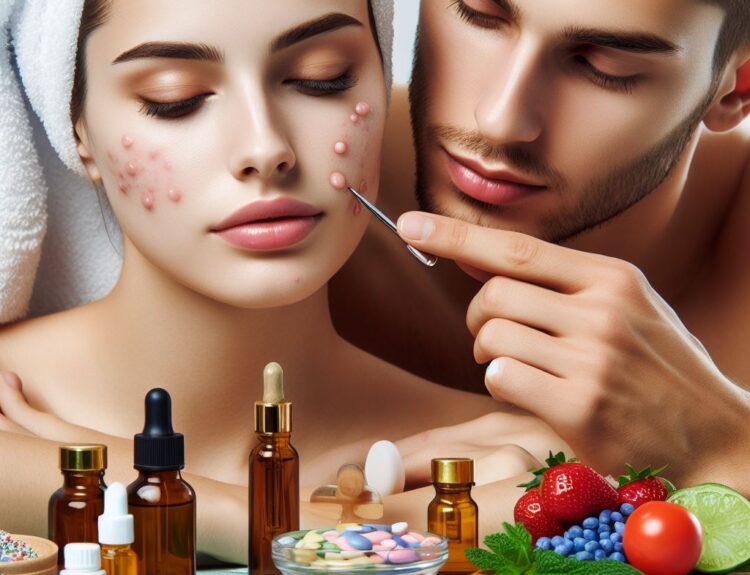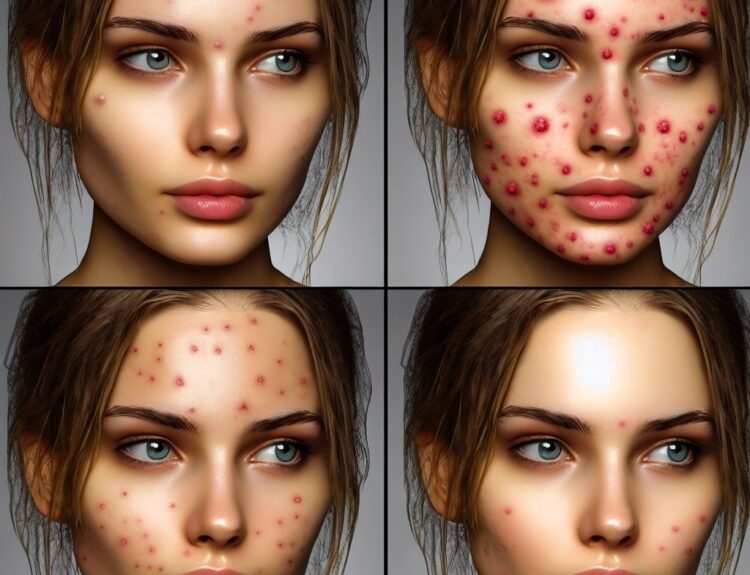Acne is a common skin condition that affects people of all ages. It can be frustrating and impact one’s self-confidence. With so many acne remedies available on the market, it’s important to know which ones are truly effective. In this comprehensive guide, we will explore different acne treatments and their effectiveness. Whether you’re a teenager struggling with hormonal acne or an adult dealing with persistent breakouts, this article will provide you with valuable information to help you find the right remedy for your skin.
Understanding Acne
Before diving into the various acne remedies, it’s important to have a basic understanding of what acne is and what causes it. Acne occurs when hair follicles become clogged with oil and dead skin cells. This leads to the formation of pimples, blackheads, and whiteheads. Several factors contribute to the development of acne, including hormonal imbalances, genetics, and certain lifestyle factors.

Over-the-Counter Acne Treatments
Over-the-counter (OTC) acne treatments are readily available in drugstores and online. These products typically contain active ingredients such as benzoyl peroxide, salicylic acid, or sulfur. They work by reducing inflammation, unclogging pores, and killing bacteria. While OTC treatments can be effective for mild to moderate acne, it’s important to choose the right product for your specific skin type.
Benzoyl Peroxide
Benzoyl peroxide is one of the most common ingredients found in OTC acne treatments. It has both anti-inflammatory and antibacterial properties, making it effective in reducing redness and killing the bacteria that contribute to acne. However, it can be drying and irritating to the skin, so it’s important to start with a low concentration and gradually increase if needed.
Salicylic Acid
Salicylic acid is another popular ingredient in OTC acne treatments. It works by exfoliating the skin and unclogging pores, which helps to prevent breakouts. Salicylic acid is particularly effective for oily skin types as it helps to control excess oil production. It’s important to note that salicylic acid may cause dryness and irritation, so it’s essential to moisturize and use sunscreen when using products containing this ingredient.
Sulfur
Sulfur is a natural mineral that has been used for centuries to treat various skin conditions, including acne. It has both antimicrobial and anti-inflammatory properties, making it effective in reducing acne-causing bacteria and soothing inflamed skin. Sulfur is often found in spot treatments or masks and can be a suitable option for those with sensitive skin.
Prescription Acne Medications
In some cases, OTC treatments may not be enough to effectively manage acne. Prescription medications, such as topical creams, gels, or oral antibiotics, may be necessary. These medications are typically prescribed by dermatologists and target specific factors contributing to acne.
Topical Retinoids
Topical retinoids, such as tretinoin and adapalene, are commonly prescribed for acne. They work by unclogging pores, reducing inflammation, and increasing cell turnover. However, it’s important to note that retinoids can cause skin dryness and sensitivity to the sun. It’s essential to follow your dermatologist’s instructions and use sunscreen regularly when using these medications.
Oral Antibiotics
Oral antibiotics are often prescribed for moderate to severe acne. They work by reducing acne-causing bacteria and inflammation. Commonly prescribed oral antibiotics for acne include doxycycline, minocycline, and tetracycline. It’s important to take oral antibiotics as directed and complete the full course of treatment to prevent antibiotic resistance.
Isotretinoin
Isotretinoin, also known as Accutane, is a powerful oral medication used to treat severe acne that doesn’t respond to other treatments. It works by reducing oil production, unclogging pores, and reducing inflammation. Isotretinoin is highly effective but also comes with potential side effects, including dryness, sensitivity, and possible birth defects. It should only be prescribed and monitored by a dermatologist.
Natural Remedies for Acne
Some individuals prefer to explore natural remedies for acne. While scientific evidence supporting the effectiveness of natural remedies may be limited, some people have found them helpful in managing their acne. It’s important to keep in mind that natural remedies may not work for everyone, and it’s essential to consult with a healthcare professional before trying any new treatment.

Tea Tree Oil
Tea tree oil is a natural essential oil known for its antimicrobial properties. It can help kill acne-causing bacteria and reduce inflammation. However, it’s important to dilute tea tree oil before applying it to the skin, as it can be irritating in its pure form. It’s also recommended to do a patch test before using it on larger areas of the face or body.
Aloe Vera
Aloe vera is a soothing plant extract that has anti-inflammatory properties. It can help reduce redness and inflammation associated with acne. Aloe vera gel can be applied topically to the affected areas. Look for pure aloe vera gel without added ingredients for the best results.
Green Tea Extract
Green tea extract contains antioxidants that help reduce inflammation and fight bacteria. It can be used topically as a toner or taken orally as a supplement. Some studies suggest that green tea extract may help improve acne symptoms, but more research is needed to establish its effectiveness.
Lifestyle Changes for Acne Management
In addition to using acne remedies, certain lifestyle changes can help manage and prevent acne breakouts. These changes include:
- Healthy Diet: A balanced diet rich in fruits, vegetables, lean proteins, and whole grains can support overall skin health. Avoiding processed foods, sugary snacks, and dairy products may also help reduce acne symptoms for some individuals.
- Regular Exercise: Exercise promotes healthy blood circulation and reduces stress, both of which can contribute to improved skin health. Remember to shower and cleanse your skin after exercise to remove sweat and bacteria.
- Proper Skincare Routine: Establishing a consistent skincare routine is crucial for acne management. Use gentle cleansers, avoid harsh scrubbing, and moisturize daily. Look for non-comedogenic products that won’t clog your pores.
- Stress Management: Stress can worsen acne symptoms. Find healthy ways to manage stress, such as practicing yoga, meditation, or engaging in hobbies that bring you joy.
Conclusion
Finding the right acne remedy can be a trial-and-error process, as what works for one person may not work for another. It’s important to be patient and consistent with your chosen treatment. Whether you opt for OTC treatments, prescription medications, natural remedies, or a combination of these approaches, consulting with a healthcare professional or dermatologist is essential. They can provide personalized recommendations based on your specific skin type and severity of acne. With the right approach, persistence, and proper skincare, you can effectively manage and improve your acne condition, restoring your confidence and achieving clearer, healthier skin.
Remember, everyone’s skin is unique, and what works for one person may not work for another. It’s important to listen to your body and adapt your skincare routine accordingly.







